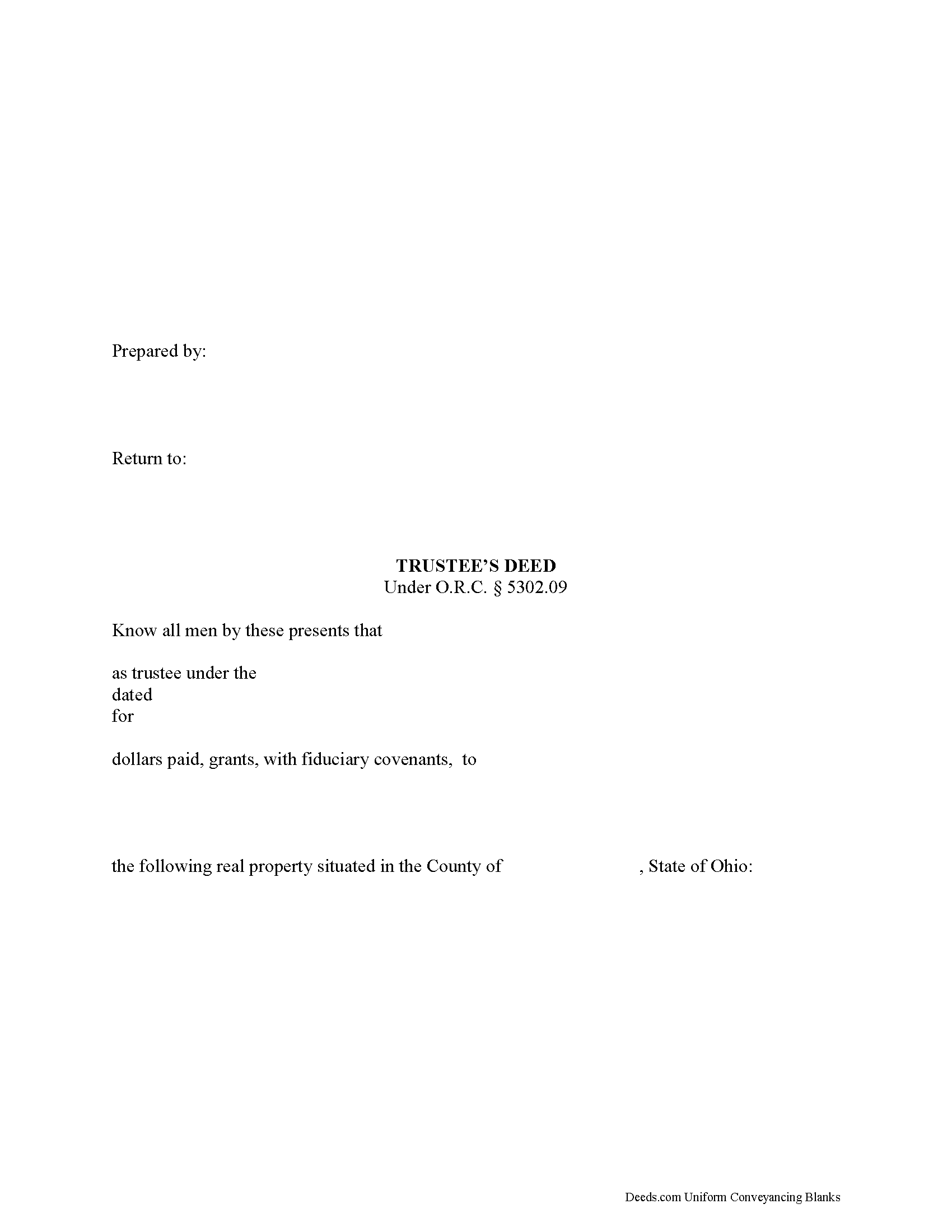Download Ohio Trustee Deed Legal Forms

Ohio Trustee Deed Overview

Ohio Trustee's Deed
Ohio Revised Code Section 5302.09 outlines the general form of a deed for use by individuals serving as fiduciaries, including trustees. A fiduciary is a person who is appointed to manage someone else's assets, often for the benefit of a third party.
Trustee's deeds are used in trust administration to convey real property out of a trust. A settlor creates a trust, typically for estate planning purposes, and funds it with assets that can include both real and personal property. The trustee controls the trust's assets for the settlor, according to the terms of the trust document. If the settlor directs the trustee to transfer real property out of the trust, the trustee executes a trustee's deed; the settlor is not involved in the conveyance. This is useful because leaving the settlor's name off the transfer it maintains his/her privacy.
In Ohio, the basic trustee's deed is similar to a quitclaim deed, in that it offers no warranty of title. Depending on the situation, the trustee might add guarantees to bring the deed in line with special warranty or warranty deeds.
The trustee's deed must fulfill all requirements for instruments affecting real property in the State of Ohio (legal description, Parcel ID, prior instrument reference, etc.). In addition, it names the trustee as the grantor and provides basic information about the trust under which the trustee is acting. A memorandum of trust (O.R.C. 5301.255) is sometimes included to verify the trust's existence and the trustee's authority to act on behalf of the trust. As with other instruments, the deed requires a signature and acknowledgment in the presence of a notary. It is recorded in the county where the property is situated.
Trust law can quickly become complicated, and each situation is unique. Contact a lawyer with any specific questions and for guidance on trust law.
(Ohio Trustee Deed Package includes form, guidelines, and completed example)